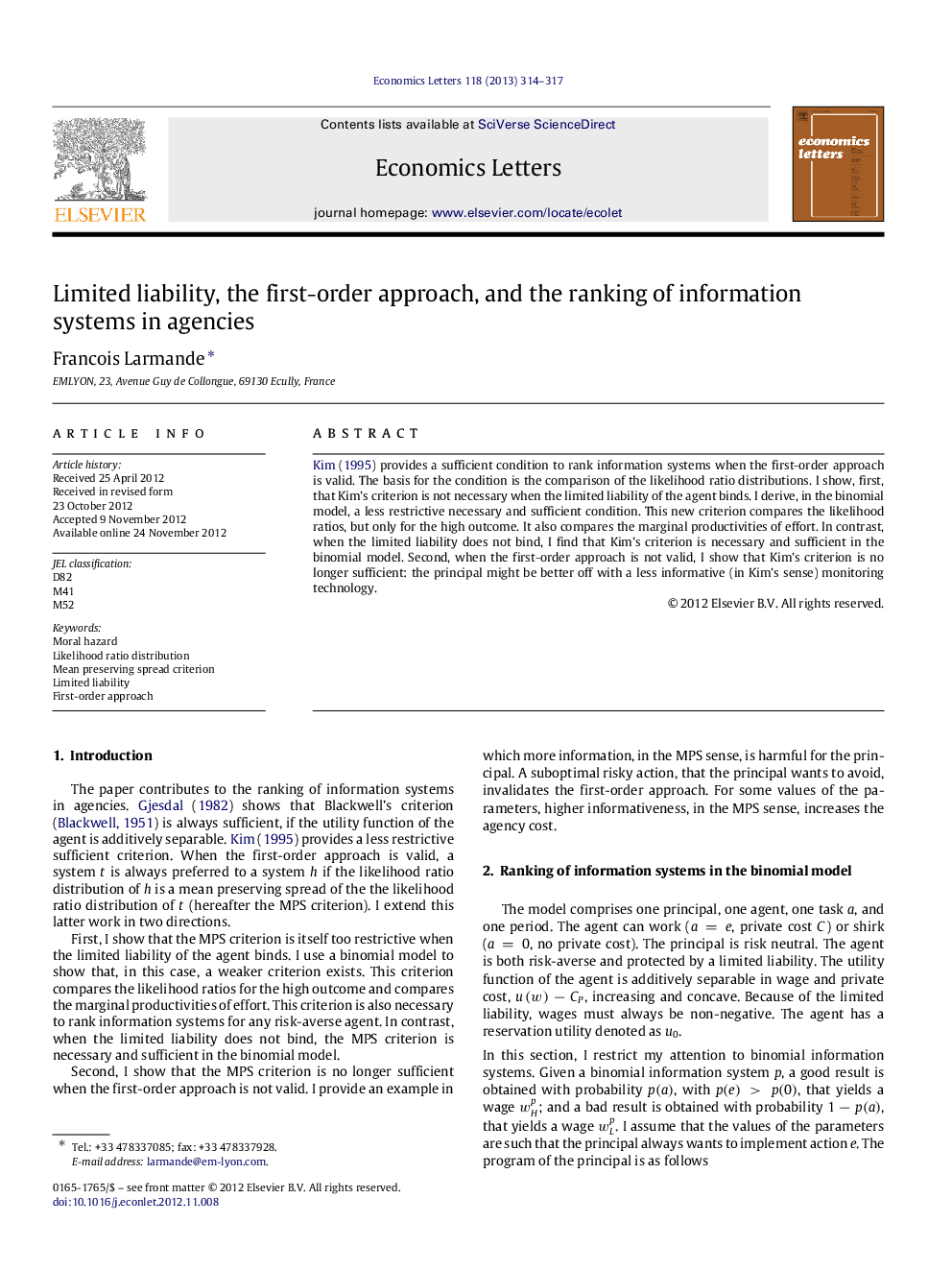| Article ID | Journal | Published Year | Pages | File Type |
|---|---|---|---|---|
| 5059992 | Economics Letters | 2013 | 4 Pages |
Kim (1995) provides a sufficient condition to rank information systems when the first-order approach is valid. The basis for the condition is the comparison of the likelihood ratio distributions. I show, first, that Kim's criterion is not necessary when the limited liability of the agent binds. I derive, in the binomial model, a less restrictive necessary and sufficient condition. This new criterion compares the likelihood ratios, but only for the high outcome. It also compares the marginal productivities of effort. In contrast, when the limited liability does not bind, I find that Kim's criterion is necessary and sufficient in the binomial model. Second, when the first-order approach is not valid, I show that Kim's criterion is no longer sufficient: the principal might be better off with a less informative (in Kim's sense) monitoring technology.
âºKim (1995) provides a sufficient condition for ranking information systems in agencies when the first-order approach is valid. ⺠Kim's criterion is not necessary when the limited liability constraint of the agent binds. ⺠A weaker necessary and sufficient criterion is derived in that case. ⺠When the first-order approach is not valid, Kim's criterion is no longer sufficient. ⺠The principal might be better off with a less informative (in Kim's sense) monitoring technology.
